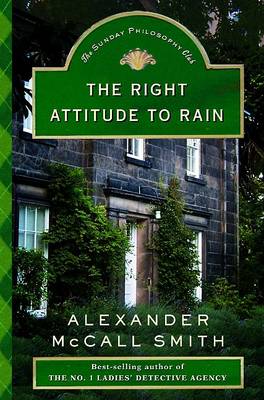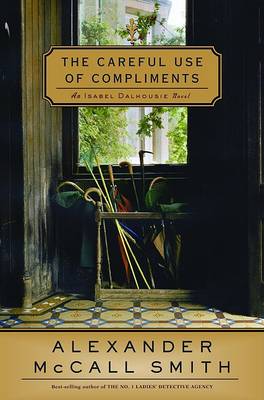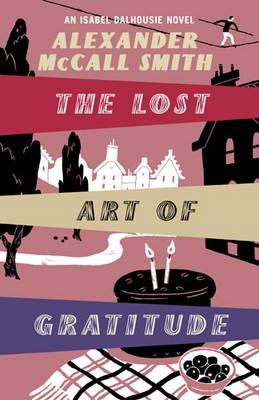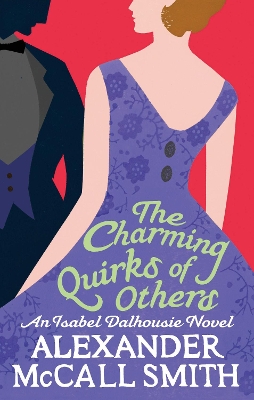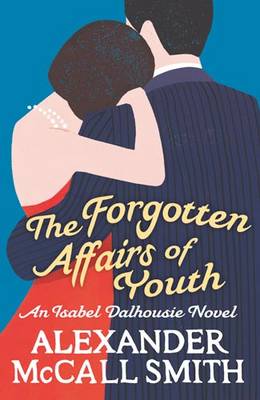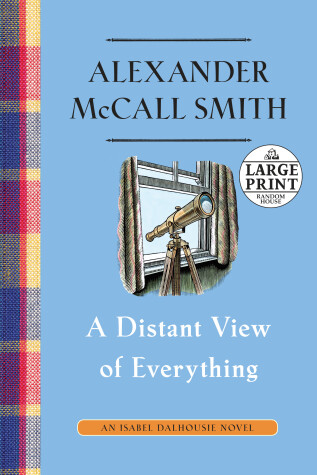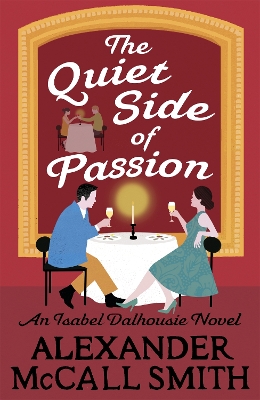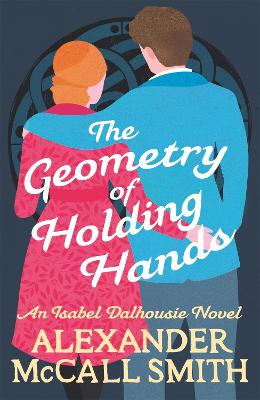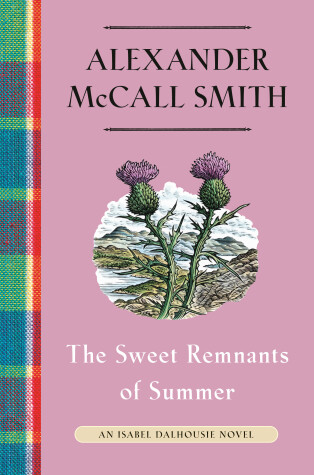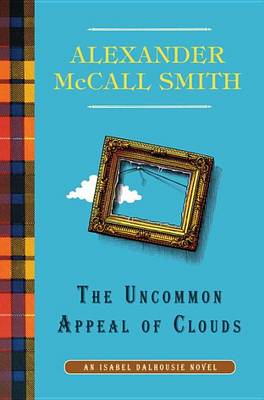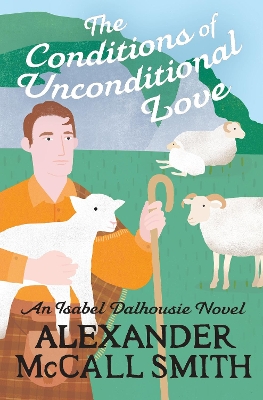Isabel Dalhousie
13 primary works • 19 total works
Book 1
Book 2
Book 3
Book 4
Book 5
ISABEL DALHOUSIE - Book 5
Nothing captures the charm of Edinburgh like the bestselling Isabel Dalhousie series of novels featuring the insatiably curious philosopher and woman detective. Whether investigating a case or a problem of philosophy, the indefatigable Isabel Dalhousie, one of fiction’s most richly developed amateur detectives, is always ready to pursue the answers to all of life’s questions, large and small.
In the delectable fifth installment of the bestselling adventures of Isabel Dalhousie, our cherished inquisitive heroine returns to investigate a medical mystery.
A doctor's career has been ruined by allegations of medical fraud and Isabel cannot ignore what may be a miscarriage of justice. Besides, Isabel's insatiable interest is piqued and she finds herself asking questions. Would a respected doctor make such a grave mistake? If not, what explains the death of the patient? Clearly, an investigation is in order.
Meanwhile, there is her baby Charlie, who needs looking after; her niece Cat who needs someone to mind her deli; and a mysterious composer who has latched on to Jamie, making Isabel decidedly uncomfortable. Whatever the problem, whatever the case, we know we can count on Isabel's instincts to help her find the right solution.
Book 6
Book 7
As well as its advantages, there are drawbacks to the enlightened village that is twenty-first-century Edinburgh, where every Saturday night ears burn at dinner parties across the city, and anyone requiring the investigative abilities of a philosophical soul knows where to find her.
Jillian McKinlay -- wife of a trustee of an illustrious school -- is the latest petitioner; she asks Isabel to look into a poison-pen letter that makes insinuations about applicants for the position of principal. Isabel's niece Cat has another new boyfriend who seems too good to be true. And when a pretty cellist with a tragic story takes a fancy to her husband-to-be, Isabel finds herself contemplating an act of heroic and alarming self-sacrifice.
Book 8
Book 10
Isabel Dalhousie is one of Edinburgh's most generous (but discreet) philanthropists - but should she be more charitable? She wonders, sometimes, if she is too judgmental about her niece's amorous exploits, too sharp about her housekeeper's spiritual beliefs, too ready to bristle in battle against her enemies.
As the editor of the Review of Applied Ethics, she doesn't, of course, allow herself actual enemies, but she does feel enmity - especially towards two academics who have just arrived in the city. Isabel feels they're a highly destabilizing influence; little tremors in the volcanic rock upon which an Enlightened Edinburgh perches. Equally troubling is the situation of the little boy who is convinced he had a previous life. When Isabel is called upon to help, she finds herself questioning her views on reincarnation. And the nature of grief. And - crucially - the positioning of lighthouses.
The only questions Isabel doesn't have to address concern her personal life. With her young son and devoted husband her home life is blissfully content. Which is the best possible launching pad for the next issue of the Review - the Happiness issue. As Isabel is beginning to appreciate, happiness, for most people, is not quite what it seems . . .
Book 11
A new baby brings an abundance of joy to Isabel and her husband, Jamie—but almost-four-year-old Charlie is none too keen on his newborn brother. In fact, he refuses to acknowledge Magnus, and Isabel must find a way to impress upon her older son the patience and understanding that have served as guiding principles in her own life.
These are the very qualities that bring Bea Shandon, an old acquaintance of Isabel’s, to seek her help in a tricky situation. Something of a matchmaker, Bea has introduced a wealthy female friend to a cosmetic surgeon at her most recent dinner party. Then new information comes to light about the surgeon that causes Bea to doubt his motives and the auspiciousness of the match. Isabel agrees to find out more, but as her enquiries take an unexpected turn, she starts to wonder whom exactly she should be investigating. As ever, Isabel’s intelligence, quick wit, and deep empathy will come to her aid as she grapples with the issues that are her bread and butter: friendship and its duties, the obligation of truthfulness, and the importance of perspective.
Book 12
The twelfth instalment in the Isabel Dalhousie series . . .
It is summer in Edinburgh and Isabel Dalhousie is once again caught between 'gossip' and significant rumour. It is none of her business that Patricia, the mother of her son Charlie's little friend Basil, is estranged from Basil's father, or that the woman has a somewhat brazen attitude to childcare. And yet, it is curious.
Isabel, however, has much else on her mind as editor of the Review of Applied Ethics. Along with the work involved for its impending next issue, she really needs to get her house in order and tend to the demands of her niece, Cat. Thankfully, the arrival of Antonia, the exuberant Italian au pair, will take care of urgent chores. And the hiring of Claire, a diligent if unsettlingly beautiful new assistant at the Review, surely means that Isabel can breathe, at least a little.
But her sharp observation and assured role as confidante soon have Isabel doubting all her recent decisions. What's more, her instinct to help others may have put her in real danger. In her desire to run both a smooth household and working life, has she simply created more chaos? Perhaps the quiet side of passion is, after all, the best side on which to be?
Book 13
THE THIRTEENTH INSTALLMENT OF THE MUCH-LOVED ISABEL DALHOUSIE SERIES
When Isabel Dalhousie and her husband Jamie book a table at an expensive Edinburgh restaurant, she finds herself battling with her conscience. Lately, there has been a lull in work for the Review of Applied Ethics, and the care of their young sons, Charlie and Magnus, is often undertaken by their housekeeper Grace. Is Isabel deserving of such a luxurious dinner?
But Isabel holds herself to impossible moral standards. Not so, the parents of one of Jamie's students, who have no qualms about ensuring their son's place in the school orchestra, despite his mediocre talent. In the restaurant, Isabel witnesses a row between local businessmen; another reminder that thoughtless ambition is too often second nature to others.
Compelled to intervene in the aftermath, Isabel's sense of integrity is observed by a fellow diner, Iain Melrose, who seeks out her help. He must decide which of his remaining relatives should one day inherit his estate. Isabel, he believes, would make a just executor of his will.
While she deliberates, another troubling situation arises with her niece, Cat, whose relationship with the unlikeable Leo is causing her to behave recklessly, putting Isabel in a very difficult position.
Faced with such weighty decisions, can Isabel balance compassion and integrity to make the right choice for all, and to protect those she holds dear to her heart?
Book 14
When Isabel is invited to serve on the advisory committee of the Scottish National Portrait Gallery, her husband, Jamie, expresses concern about the demands on her time. Never one to duck an obligation, however, Isabel says she’d be happy to join. There she meets a woman named Laura, whose husband—a prominent wine merchant from an illustrious family—and son are at odds. Laura asks whether Isabel might arbitrate between them. Isabel is reluctant to intervene in a familial drama but, always one for practical and courteous solutions to theoretical problems, she feels obligated to help. Will the demands on her moral attention never cease?
Meanwhile, having criticized Isabel for getting involved in the affairs of others, Jamie does precisely that himself. He’s helping to select a new cellist for his ensemble but suspects that the conductor’s attention may be focused on something other than his favored candidate’s cello skills. Jamie feels it’s important that the most qualified applicant gets the job—but how to determine whether the conductor has the right qualifications in mind?
With so many complicated and fraught issues demanding their attention, Isabel and Jamie will have to tap deep into their reserves of tact and goodwill as they navigate the tricky and turbulent waters of these emotional matters.
As a mother, wife, employer and editor of the Review of Applied Ethics, Isabel Dalhousie is aware that to be human is to be responsible. So when a neighbour brings her a new and potentially dangerous puzzle to solve, once again Isabel feels she has no option but to shoulder the burden.
A masterpiece painting has been stolen from Duncan Munrowe, old-fashioned philanthropist, father to two discontented children, and a very wealthy man. As Isabel enters into negotiations with the shadowy figures who are in search of a ransom, a case where heroes and villains should be clearly defined turns murky: the list of those who desire the painting - or the money - lengthens, and hasty judgement must be avoided at all cost. Morals, it turns out, are like Scottish clouds: complex, changeable and tricky to get a firm grip on; they require a sharp observational eye, a philosophical mindset, and the habit of kindness. Fortunately for those around her, Isabel Dalhousie is in possession of all three.
The Perils of Morning Coffee & At the Reunion Buffet
by Alexander McCall Smith
Isabel Dalhousie - philosopher, mother and friend - is taking on the mammoth task of hosting her school reunion. In the hours before twenty-five former classmates descend on her home, and the caterers arrive to set up a buffet, Isabel has time to reflect. She is mindful of the fact that reunions can bring up all sorts of uncomfortable feelings.
Later that night, with the party in full swing, Isabel realises that the pull of the past remains as strong as ever. Some people are interested in fuelling disagreements, while others are hoping to make amends. As hostess of the party, Isabel feels compelled to help them on the path to mercy and forgiveness. But what if the reasons for forgiveness are murky and suspect? And what if long-held secrets threaten to derail Isabel's efforts?
In this warm, intelligently observed novella, Alexander McCall Smith's wonderful heroine, Isabel, learns valuable lessons about inviting the past into your life.
Edinburgh basks in glorious, but brief, summer sunshine, and Isabel Dalhousie - philosopher, philanthropist and mother - searches for the perfect birthday present for her husband Jamie. While carefully seeking out a gift, Isabel finds herself at a viewing for an auction, and happens upon an old friend in distress - a friend who decides to unburden herself of her secrets, and to reveal a clue within a painting hanging on the walls of the auction house.
Soon Isabel discovers that this secret binds her not only to her friend, but also to another woman. Questions about morality and loyalty disturb Isabel's peaceful existence with her young son and precious family, but she must face up to them in order to ensure that no one is led astray.
Sweet, Thoughtful Valentine is a charming and gentle novella featuring one of Alexander McCall Smith's most loved characters: Isabel Dalhousie.
BOOK 15 IN THE MUCH-LOVED ISABEL DALHOUSIE SERIES
'You can't go out of the house without tripping over a philosophical question.' That is a remark made by Isabel Dalhousie to Jamie, the bassoonist who is her handsome younger husband. Isabel's own life, of course, points to the truth of this observation: she seems to attract philosophical problems in much the same way as a magnet attracts iron filings.
In this latest movement in the symphony of her life, Isabel is faced with novel challenges, each of which tests her resolution to do the right thing. Dawn, a nurse in an infectious diseases ward, is let down by her lover and needs a place to live. Not surprisingly, Isabel offers her a roof over her head. What do you do, though if your house-guest locks herself away and avoids all contact?
And then there is the pompous and slippery Professor Robert Lettuce. He is planning a prestigious conference, and involves Isabel in it. But look at the budget: why is there such a large payment for Lettuce himself and for a young female assistant? Isabel is suspicious.
Other intriguing problems abound, including Isabel's involvement in a book group threatened by discord and bickering. Isabel remains calm. Of course she does. She knows the power of love, reason, and a clear head to resolve all of these issues, and more.
PRAISE FOR THE ISABEL DALHOUSIE NOVELS:
'Isabel Dalhousie's charm is undeniable' Sunday Times
'The No. 2 Lady Detective . . . anyone who loves Precious cannot fail to be charmed' Mail on Sunday
'Delightful . . . McCall Smith is a writer who celebrates kindness, in short supply in the world today' Sunday Telegraph
'McCall Smith's greatest gift as a writer - and God knows this is just one of many - is that he can write likeable characters' New Statesman


